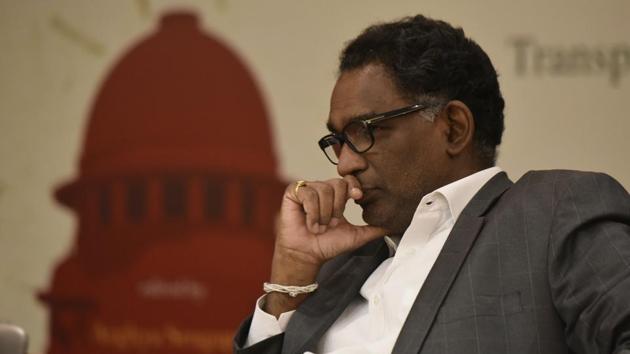Jasti Chelameswar, a rebel judge who stood apart
Known as a rebel judge, Justice Chelameswar will go down in Indian judicial history for organising and leading an extraordinary and unprecedented press conference on January 12, 2018.
A day ahead of his 65th birthday, justice Jasti Chelameswar’s 21-year career as a judge came to an end on Friday. Elevated to the Supreme Court in 2011, the senior judge had been mired in controversies and has also been called a rebel judge.

But justice Chelameswar will go down in Indian judicial history for organising and leading an extraordinary and unprecedented press conference on January 12, 2018, when he along with three other senior judges — Justice Ranjan Gogoi, Justice Madan B Lokur and Justice Kurian Joseph — called out that all was not well in the Supreme Court of India.
This was the first time that sitting judges had organised a press conference on matters affecting the judiciary and the alleged high-handedness of the Chief Justice of India, Dipak Misra, in managing the affairs of the court and judiciary.
In April this year, the judge again created a flutter when he wrote a strongly worded letter to the CJI and marked it to all the SC judges seeking a full-court meeting to discuss the alleged interference of the executive in judicial appointments.
He had taken strong exception to Karnataka high court chief justice D Maheshwari initiating enquiry against a district judge at the instance of the Union law ministry. The district judge was recommended for elevation to HC by the SC collegium, but the Centre cited a sexual harassment complaint to seek an appropriate probe.
In May again justice Chelameswar, on his last working day, before the court broke for the summer vacation, hit the limelight when he declined an invite by the Supreme Court Bar Association (SCBA) for a farewell function.
As a custom, every retiring judge is given a farewell by the Supreme Court Bar Association on the judge’s last working day. But in case of justice Chelameswar, the function was proposed to be held on May 18, the last working day of the Supreme Court before it goes for a 45-day summer break.
A look at Justice Chelameswar’s career:
Controversies
January 12, 2018 press conference – Justice Chelameswar and senior judges Justices Ranjan Gogoi, MB Lokur and Kurian Joseph, publicly criticised the Chief Justice of India (CJI) Dipak Misra for his style of administration and over the allocation of cases. The conference was unprecedented for a judge of the top court.
Prasad medical college case – A bench headed by justice Chelameswar last year referred the case of alleged corruption against judges to a bench of 5 judges. The order was set aside by a 5-judge bench led by the CJI Dipak Misra.
Transparency in Collegium – In September 2016, justice Chelameswar wrote to then-CJI TS Thakur, refusing to attend collegium meetings on grounds of non-transparency.
Important cases
NJAC case – Justice Chelameswar’s strong views against the lack of transparency in judiciary became known when he authored a strongly worded dissent against the collegium system followed to appoint judges to high courts and Supreme Court.
He disagreed with four fellow judges when they struck down the NDA government’s National Judicial Appointments Commission (NJAC) Act in October 2015. The new law was meant to replace the controversial system of judges selecting judges.
Right to Privacy case – Justice Chelameswar was part of the 9-judge bench that declared right to privacy a fundamental right in August 2017.
“The right to privacy is certainly one of the core freedoms which is to be defended. It is part of liberty within the meaning of that expression in Article 21. A woman’s freedom of choice whether to bear a child or abort her pregnancy are areas which fall in the realm of privacy,” he said.
Shreya Singhal/Section 66A case – A bench comprising justice Chelameswar and justice R Nariman struck down the provision 66A of the Information Technology Act that had led to arrests of many people for posting content deemed to be “allegedly objectionable” on the internet.
Aadhaar case – In 2015, justice Chelameswar was part of the three-judge bench which had said that no Indian can be denied government subsidies and other services just because they do not have Aadhaar.






